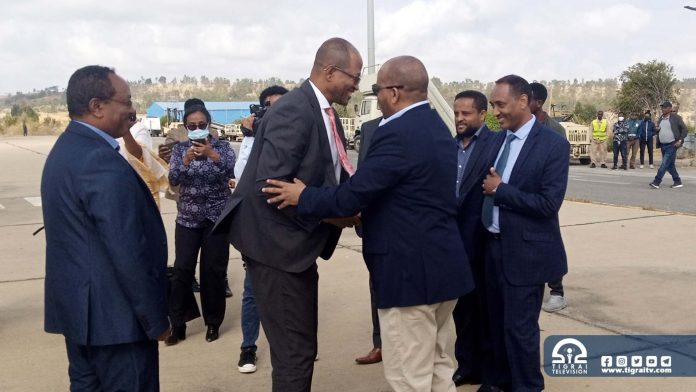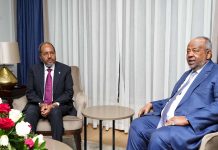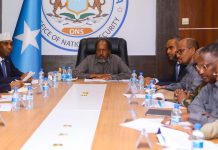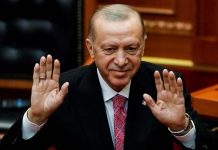The delegation visiting the Tigrayan capital Mekele will “supervise the implementation of major issues in the peace agreement” signed on November 2, an Ethiopian government statement said.
The team is led by House of Peoples Representatives speaker Tagesse Chafo and includes Redwan Hussein, who is the security adviser to Prime Minister Abiy Ahmed, as well as the ministers of justice, transport and communication and labour.
The head of Ethiopia’s road infrastructure authority and the heads of Ethiopian Airlines and Ethio Telecom — Mesfin Tasew and Frehiwot Tamiru — are also present.
“The delegation is the first of its stature as a high-level federal government body heading to Mekele in two years,” the statement said.
“This gesture is an attestation to the peace agreement getting on the right track and progressing,” it said.
The delegation was greeted by rebel authorities, including their spokesman Getachew Reda, Tigrayan photographs showed.
The war began in November 2020 when Prime Minister Abiy Ahmed sent troops into Tigray after accusing the Tigray People’s Liberation Front (TPLF), the ruling party in the region, of attacking army bases.
Estimates of casualties vary widely, with the United States saying that as many as half a million people have died.
The conflict has also unleashed one of the world’s worst humanitarian disasters in recent times.
More than two million people have been displaced, hundreds of thousands have been driven to the brink of famine and around 13.6 million people are dependent on humanitarian aid, according to UN figures.
Of these, 5.4 million are in Tigray, seven in Amhara and 1.2 million in Afar.
Monitoring mechanism
The agreement signed in the South African capital Pretoria provides for the disarmament of rebel forces, the re-establishment of federal authority in Tigray and the reopening of access to the region.
The two sides on Thursday agreed to create a joint monitoring and compliance mechanism to oversee the deal and receive complaints about any abuse towards civilians.
Aid has started trickling back into Tigray since the peace deal was signed, going some way to alleviating dire shortages of food, fuel, cash and medicines.
But the region of six million is still largely without electricity and phone lines, while internet and banking services have only partly been restored.
Mekele, was hooked up to the national electricity grid on December 6, and the country’s biggest bank, the Commercial bank of Ethiopia, announced on December 19 that financial operations had resumed in some towns.
The war began in November 2020 when Prime Minister Abiy Ahmed sent troops into Tigray after accusing the Tigray People’s Liberation Front (TPLF), the ruling party in the region, of attacking army bases.
Estimates of casualties vary widely, with the United States saying that as many as half a million people have died.
The conflict has also unleashed one of the world’s worst humanitarian disasters in recent times.
More than two million people have been displaced, hundreds of thousands have been driven to the brink of famine and around 13.6 million people are dependent on humanitarian aid, according to UN figures.
Of these, 5.4 million are in Tigray, seven in Amhara and 1.2 million in Afar.
Monitoring mechanism
The agreement signed in the South African capital Pretoria provides for the disarmament of rebel forces, the re-establishment of federal authority in Tigray and the reopening of access to the region.
The two sides on Thursday agreed to create a joint monitoring and compliance mechanism to oversee the deal and receive complaints about any abuse towards civilians.
Aid has started trickling back into Tigray since the peace deal was signed, going some way to alleviating dire shortages of food, fuel, cash and medicines.
But the region of six million is still largely without electricity and phone lines, while internet and banking services have only partly been restored.
Mekele, was hooked up to the national electricity grid on December 6, and the country’s biggest bank, the Commercial bank of Ethiopia, announced on December 19 that financial operations had resumed in some towns.













